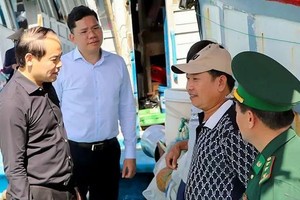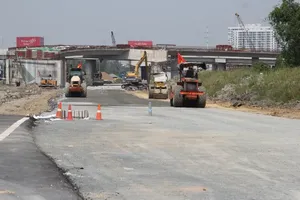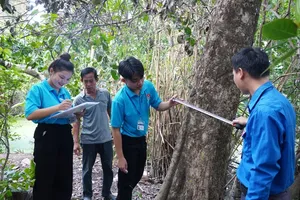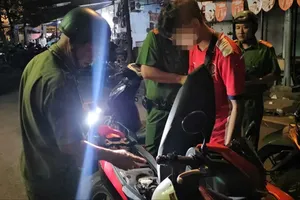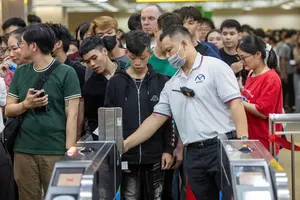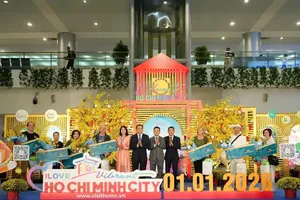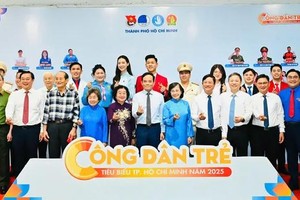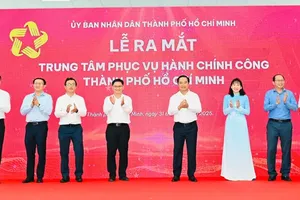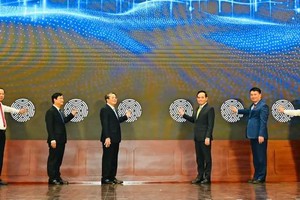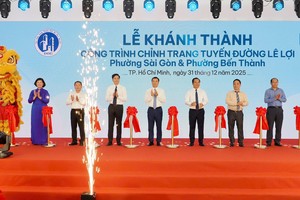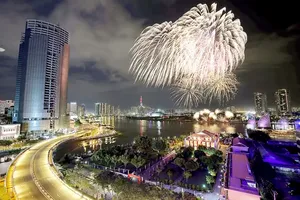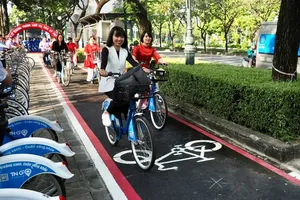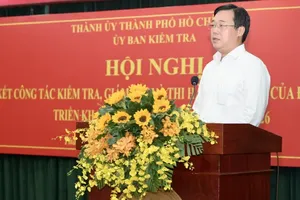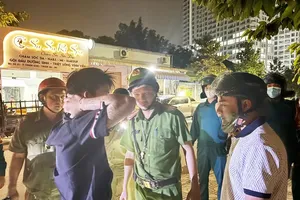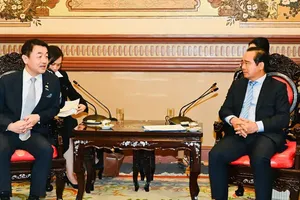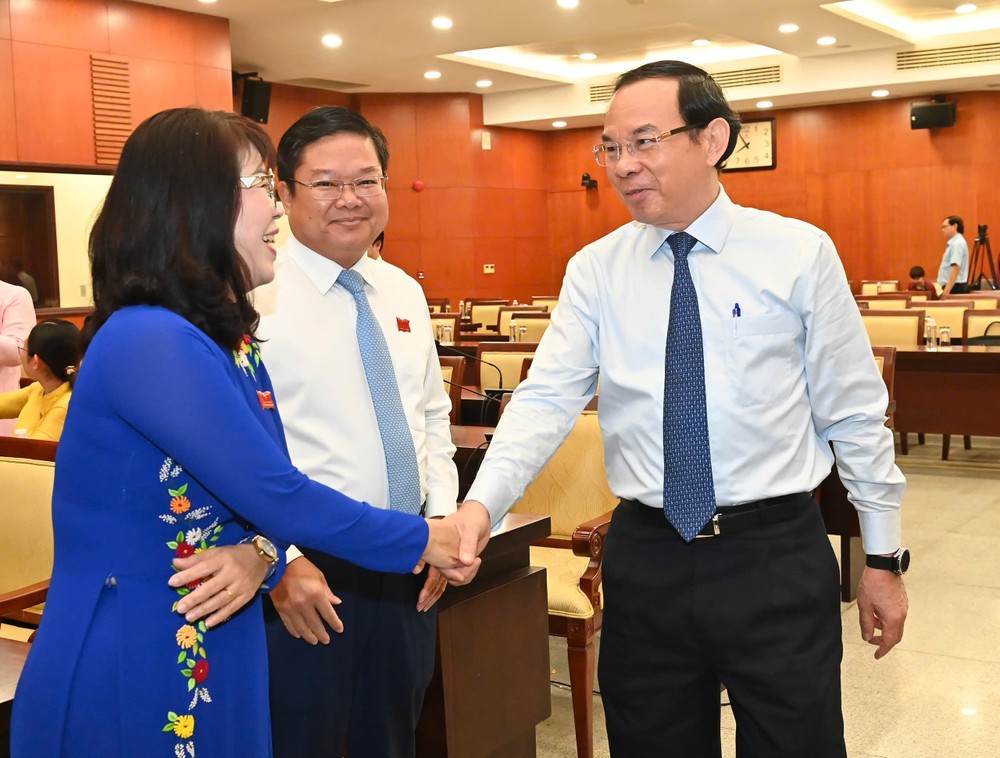
Attending the conference session were Secretary of the Ho Chi Minh City Party Committee Nguyen Van Nen and Standing Vice Secretary of the municipal Party Committee Nguyen Ho Hai. The conference was chaired by Chairwoman of the Ho Chi Minh City People’s Council Nguyen Thi Le, Vice Chairmen of the People’s Council of the city Pham Thanh Kien, and Huynh Thanh Nhan.
At the conference, delegates agreed with Ho Chi Minh City's theme for 2025, “Focusing on restructuring and streamlining the organizational apparatus to be strong, efficient, and effective; strengthening digital transformation; implementing Resolution No. 98/2023/QH15 of the National Assembly; and addressing the city’s outstanding issues and challenges.”.
Ho Chi Minh City’s 22 economic and social targets for 2025
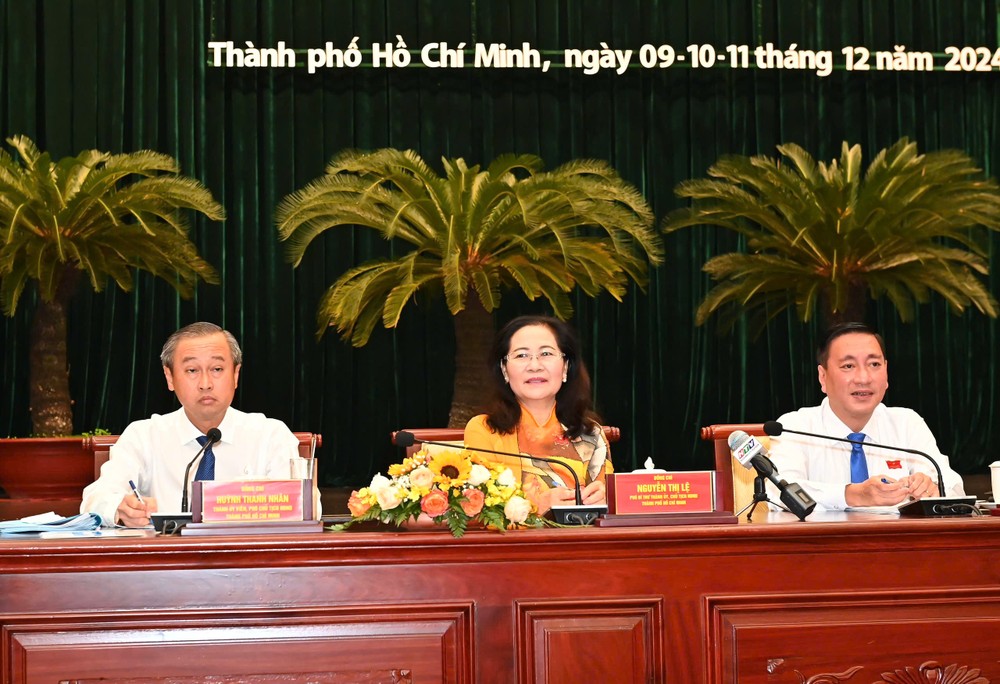
At the conference, delegates passed the draft resolution on the economic and social tasks for 2025.
The resolution determines that the city’s comprehensive goal for 2025 will focus on further enhancing the effectiveness and efficiency of Ho Chi Minh City's advantages and opportunities, especially the city's special mechanisms and policies for its development; improving the quality of management and the implementation of planning; strengthening the mobilization and effective allocation of resources; promoting achievements in the construction and investment of transport infrastructure, water supply systems, drainage systems, sewage treatment, healthcare, and education and training, especially key projects related to regional connectivity.
It also takes advantage of infrastructure, markets, human resources, and unique conditions to strongly develop the digital economy, promote the interaction between digital transformation, green transformation, and the circular economy, enhance the quality of human resources, develop science, technology, innovation, and creativity, develop culture, ensure social welfare, and improve the living standards of the people.
The resolution pays attention to administrative reforms associated with the effective implementation of urban governance, combating corruption, wastefulness, and negativity; strengthening and consolidating national defense and security; and enhancing the effectiveness of foreign relations and international integration.
The Ho Chi Minh City People's Council has approved five groups of targets with 22 component goals covering the fields of economy, culture and society, urban development, environmental protection, administrative reform, and security.
Accordingly, the city targets an economic growth rate of over 10 percent next year while the service sector is expected to account for more than 60 percent of the GRDP. The digital economy is hoped to account for 25 percent of the southern hub's gross regional domestic product (GRDP) by 2025. Specifically, GRDP per capita will reach US$8,500 a person by the end of 2025. Total social investment capital is expected to average 35 percent of the GRDP. Investment in science and technology will reach more than 1 percent of the GRDP.
In addition, the proportion of trained workers with degrees and certificates reached 87.2 percent. The city is expected to create 140,000 new jobs with the urban unemployment rate below four percent. The southern economic hub expects to have 21 doctors per 10,000 people, 42 hospital beds per 10,000 residents, and 300 classrooms per 10,000 school-age people aged 3 to 18 and ensure that all school-aged children will be able to attend school.
Ho Chi Minh City aims to be among the top five localities in the country in the Provincial Competitiveness Index (PCI) and rank among the top 15 provinces and cities for deploying the Public Administration Reform Index (PAR INDEX) and achieve a citizen satisfaction rate of 95 percent and above.
Ho Chi Minh City’s seven key tasks and solutions for 2025
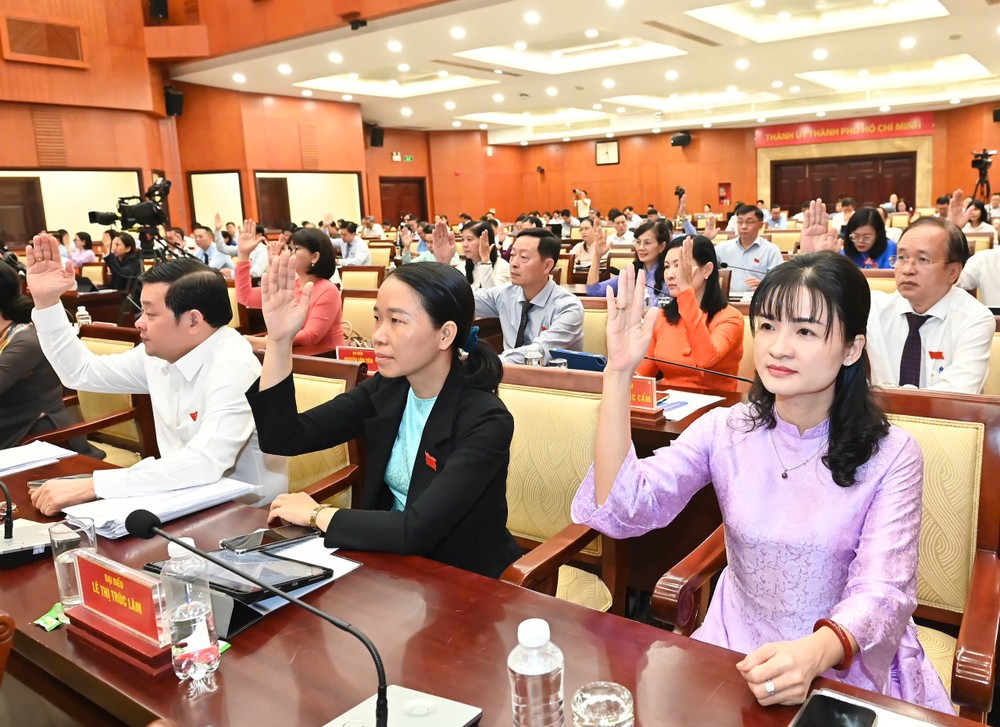
The Ho Chi Minh City People's Council has launched seven key tasks and solutions for the next year, including implementing the tasks assigned by the Central, the Party Committee and the People's Council of the city; streamlining and restructuring the administrative apparatus, and accelerating the completion of the targets set by the 11th Party Congress of Ho Chi Minh City for the 2020-2025 tenure; fostering rapid, sustainable economic growth; mobilizing all resources for the city’s construction; developing industrial production and high-value-added economies; developing processing and manufacturing industries associated with smart technology and digital transformation.
Ho Chi Minh City will implement the master plan for the city from 2021 to 2030, with a vision towards 2050, and the master plan on adjustments to the general planning of the city until 2040 with a vision to 2060; focus on creating and submitting plans for specialized infrastructure, district-level regional plans, and functional zones; approve the project on developing new riverside activities and economic services along the Saigon River between 2023 and 2024 to boost the local economy soon; and carry out a construction project of an urban industrial, service, and logistics belt system along the corridors of Ring Roads 3 and 4 and inter-regional highways.
The Ho Chi Minh City People's Council has delegated the municipal People's Committee to direct departments, agencies, and the people's committees at levels to closely coordinate and ensure the successful execution of this resolution.
The Ho Chi Minh City People's Council has suggested the Vietnam Fatherland Front Committee of the city and its member organizations enhance supervision and promote movements with practical action, encourage people from all walks of life to implement the resolution, detect and reflect issues that need to be adjusted and supplemented, and submit them to the competent authorities.
